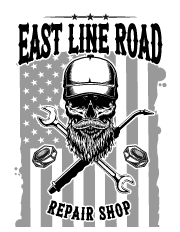The importance of brake maintenance for truck

Your truck’s braking system needs maintenance if it is to be looked at from a safety point, be functional, and ensure smooth running of your vehicle. It would also prevent expensive repair work afterwards. We will discuss here in this section key points of brake maintenance for trucks. We’ll be discussing issues, common problems that arise, the explanation behind how proper maintenance saves time and money.
How the Truck Brake System Works
Components of a Truck Brake System
The truck braking system is intricate, with numerous parts, but has basically one job: to bring your truck to a safe stop. The simple-minded parts involved are: one job of bringing your truck to a safe stop. The simple-minded parts involved are:
- Brake Pads: These are friction materials that press against the brake rotors to create the stopping force. They are quite important in the braking and need regular checking and replacement.
- Brake Rotors: Some people refer to these as brake discs. These are those components which the brake pads clamp onto in order for one to avoid further wheel rotation. Rotors bear extreme heat and friction; thus, this could be worn out or warped over time.
- Brake Calipers: It is a body that houses the brake pads, applies pressure to the latter, and forces them against the rotors. The proper function of the calipers is of vital significance for good braking.
- Brake Fluid: Brake fluid acts as hydraulic fluid to transmit the applied force from the pedal to the brake pad. Without brake fluid, the entire braking is incomplete. This level must be checked at regular intervals since the level should be right, and contamination-free.
- Brake Lines and Hoses: Brake lines and hoses refer to the channels through which the brake fluid travels from the master cylinder down to the calipers. These are to be in good condition to avoid leakage or blockage of the brakes.
- Master Cylinder: The master cylinder operates in developing hydraulic pressure on the brakes. This being one of the major parts, it is always under scrutiny.
- Brake Booster: This part amplifies the pressure applied to the pedal of the brake making it easier to apply brakes.
How the Braking System Works
Hydraulic pressure is developed by the master cylinder when the pedal is depressed, transmitted across the brake lines and hoses to the calipers and results in the clamping of the brake pads onto the rotors; this obviously creates friction of the wheels. It is the basis on which the truck will be brought to rest safely and effectively. Proper care ensures that the various elements of this system will function as specified.
Importance of Regular Brake Maintenance
Improved Safety
The safety reason is the primary reason behind routine brake maintenance. The brakes of trucks are designed to handle very much stress; however, after some time, some components may get worn out or damaged. Performing routine maintenance certain problems are identified and repaired before they develop into gross failure, which has dire consequences – some accidents and injuries.
Avoiding Costly Repairs
The routine check-up will notice the small problems before they turn into enormous ones. If worn-out brake pads aren’t replaced in time, for instance, they will at some point start damaging the rotor, which indeed is very expensive, indeed. In addition, detecting minor issues early may enable you to evade expensive repair and expand the lifespan of your braking system.
Better Performance
Well-serviced brakes mean your truck serves you with the best performance possible. Bad or damaged brakes will reflect on the way it handles its stopping distance, and the general feel of driving it. Regular maintenance keeps your brakes functioning right, hence boosting its performance and safety.
Common Brake Problems and their Causes
Worn Brake Pads
These are designed to wear out over a period of time due to their construction. However, when they get too thin, braking efficiency reduces and may further damage the rotors. The always indicative signs that one is using worn-out brake pads are the squeaking or squealing noises and a soft pedal.
Warped Rotors
Excessive heat generated from heavy braking is also known to warp brake rotors. Warped rotors tend to create vibrations in the brake pedal and can interfere with the normal feel of the overall braking performance. This is associated with a pulsating brake pedal in many instances.
Leaking Brake Fluid
Generally, brake fluid leaks are because of damage to the lines or hoses of the brake. Low levels of brake fluid could mean a soft or spongy pedal and reduced performance in stoppage. These can be avoided by periodic checks of the level of brake fluid as well as brake lines.
Air in the Brake Lines
Air in the brake lines will result in a very spongy pedal and seriously diminished braking power. This is usually a result of not bleeding the brakes after a repair or as a result of a leak in one of the brake lines. Bleeding the brake lines and ensuring that they are free of air is considered routine maintenance.
Bad Brake Calipers
Seizure of brake calipers or their failure leads to uneven wear of the brake pads or spongy/strength-less braking. Dragging brakes and or spongy braking performance are some of the most prevalent symptoms. Regular inspections go a long way in ensuring that the calipers are working as they should.
How to Maintain Your Truck’s Brakes
Regular Inspections
The fault must be checked and rectified. In visual inspection, the technician would visually inspect the condition of the brake pads, rotors, calipers, lines and even the brake fluid. They would look out for wear and damage signs while recommendations for repair or replacement would be done anytime. These are essential.
Brake Pad Replacement
Braking performance is maintained best when worn-out brake pads are replaced. Most of the brake pads have wear indicators that produce some squealing sounds whenever the pad wears out low. This is the indicator that it needs replacement to avoid rotor damage.
Resurfacing or Replacing Rotors
Too much warping of rotors or wear must be resurfaced or replaced. Most of the time, routine maintenance is done by checking the rotors and taking whatever action needed to ensure smooth and efficient braking.
Brake Fluid Check and Replacement
Brake fluid has to be checked and changed at some periodic time intervals; after sometime, brake fluid becomes contaminated or its potency decreases. It keeps the operation of the braking system smooth by topping off or replacing the brake fluid on a regular basis.
Inspection of the Brake Lines and Hoses
The brake lines and hoses are to be inspected for wear, damage, and leaks. Such kinds of problems are to be attended without much loss of time in order to avoid leakage of the brake fluid inside and to avoid failure in proper delivery of the braking action.
Conclusion
It will cover all the very important areas of truck maintenance: safety, performance, and cost-effectiveness. These regular checks and repairs, besides precautionary maintenance, are required to keep your truck’s braking system optimum and protect you from unsafe breakdowns and costly repairs. Knowing how to maintain brakes to increase safety and dependability of your truck is important to notice any signs that there may be a problem.
From professional truck brake repair in Willards, MD, to any other truck repair service in Willards, MD, the East Line Road Repair Shop is here for you. The people working at this facility are very well-educated, qualified, and bound to service with a smile to ensure that the braking system of your vehicle is always in the best condition. Delays will cost you much more; schedule an appointment for a brake inspection or brake repair by our expert mechanics today and ensure your truck is safe and operating at optimum performance.
